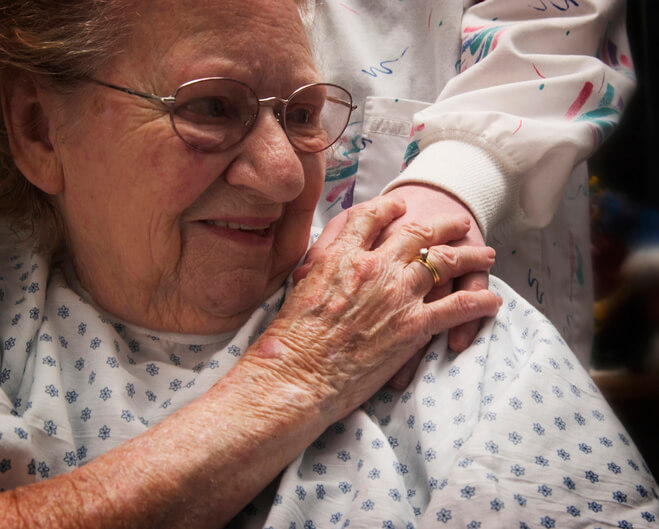How To Support A Family Member Receiving Palliative Care

When a patient is diagnosed with a life-threatening illness, both curative and palliative (pronounced PAL-lee-uh-tiv) care may be needed. Palliative medicine is a specialty that seeks to provide comfort to patients and their families by addressing the physical, psychological and spiritual issues that tend to arise with serious medical conditions.
Understanding Palliative Care
Palliative medicine is most effective when it’s a collaboration between care providers and families. As the loved one of someone with a life-threatening illness, there are certain questions you may have as you look to support the patient and other family members. They may include:
- What types of illnesses require palliative care? Any serious or life-threatening medical condition can create the need for palliative care. Patients with complex illnesses, which can be especially taxing to everyone affected, are especially good candidates for this type of intervention.
- When is palliative care needed? Palliative care should be considered if a patient has any physical, mental or spiritual distress that’s adversely affecting their well-being and/or if the patient’s illness is having a negative impact on their family.
- How are palliative care and hospice care related? While palliative care is an element of hospice care, it’s not used exclusively in that environment. Palliative care can be provided from the time a patient is diagnosed, regardless of what outcome is achievable or expected.
How does palliative care help family members?
Having a seriously ill loved one can be physically, mentally and emotionally taxing. A palliative care team looks to reduce the burden on family members by providing information, assistance, and support. This can be anything from helping them navigate the health insurance system to connecting them with grief counseling resources.
When is the “right” time to discuss palliative care with my loved one?
It’s a good idea to talk with a patient, family and their care team about palliative care as soon as the diagnosis of a life-threatening illness has been made. Rather than being portrayed as a last-ditch effort, this type of care should be viewed as a way to help the person and their family enjoy a better quality of life regardless of if or how the illness progresses.
Ultimately, the best way to be involved in a loved one’s palliative care is to be informed.
The integration of palliative medicine into a care plan creates a tightly connected community in which every member supports the others in whatever ways they can. Through open, honest and regular communication, everyone affected benefits from a clear understanding of what actions can be taken and are being taken to lessen the suffering of the patient and their loved ones.
Learn more about palliative care at Baptist Health.



